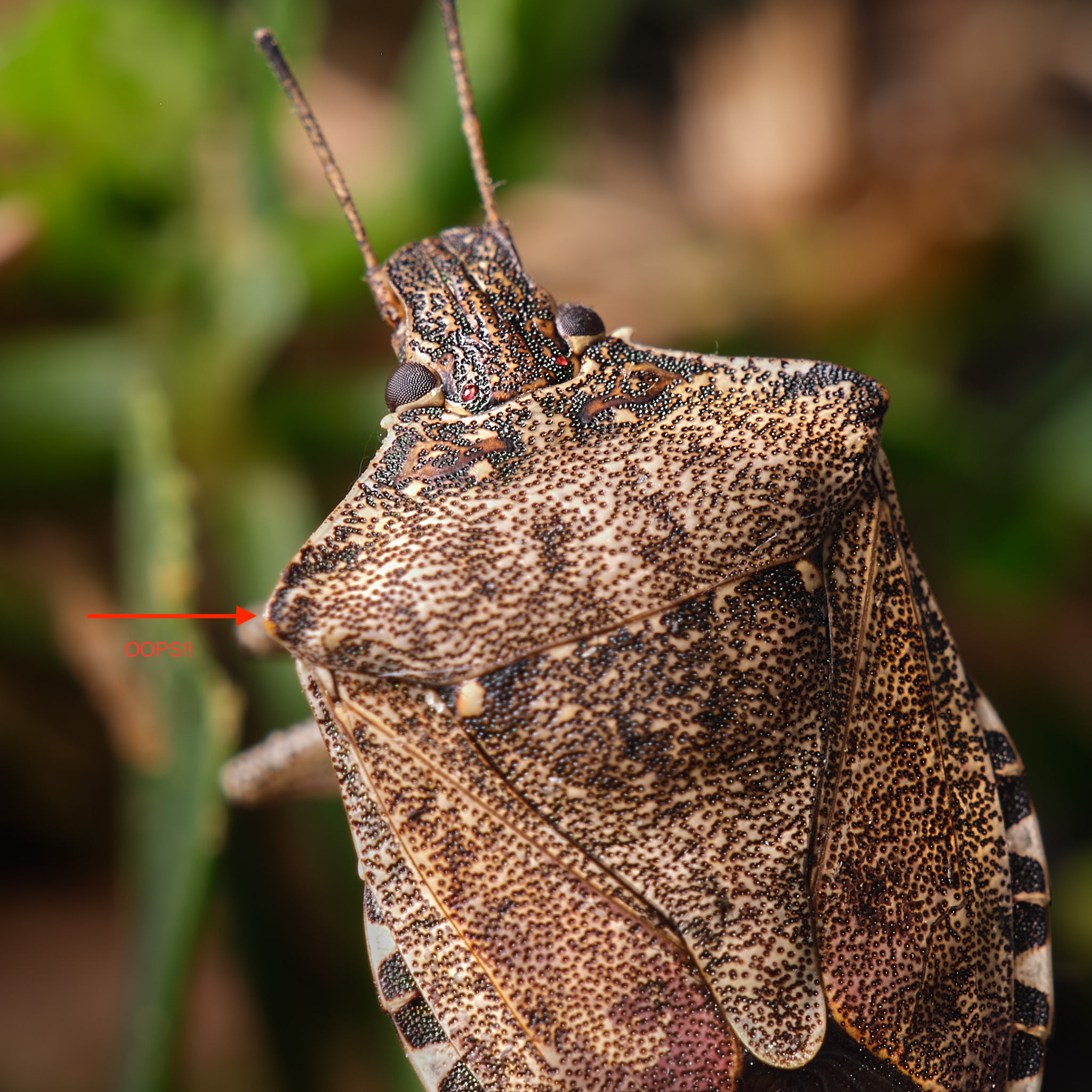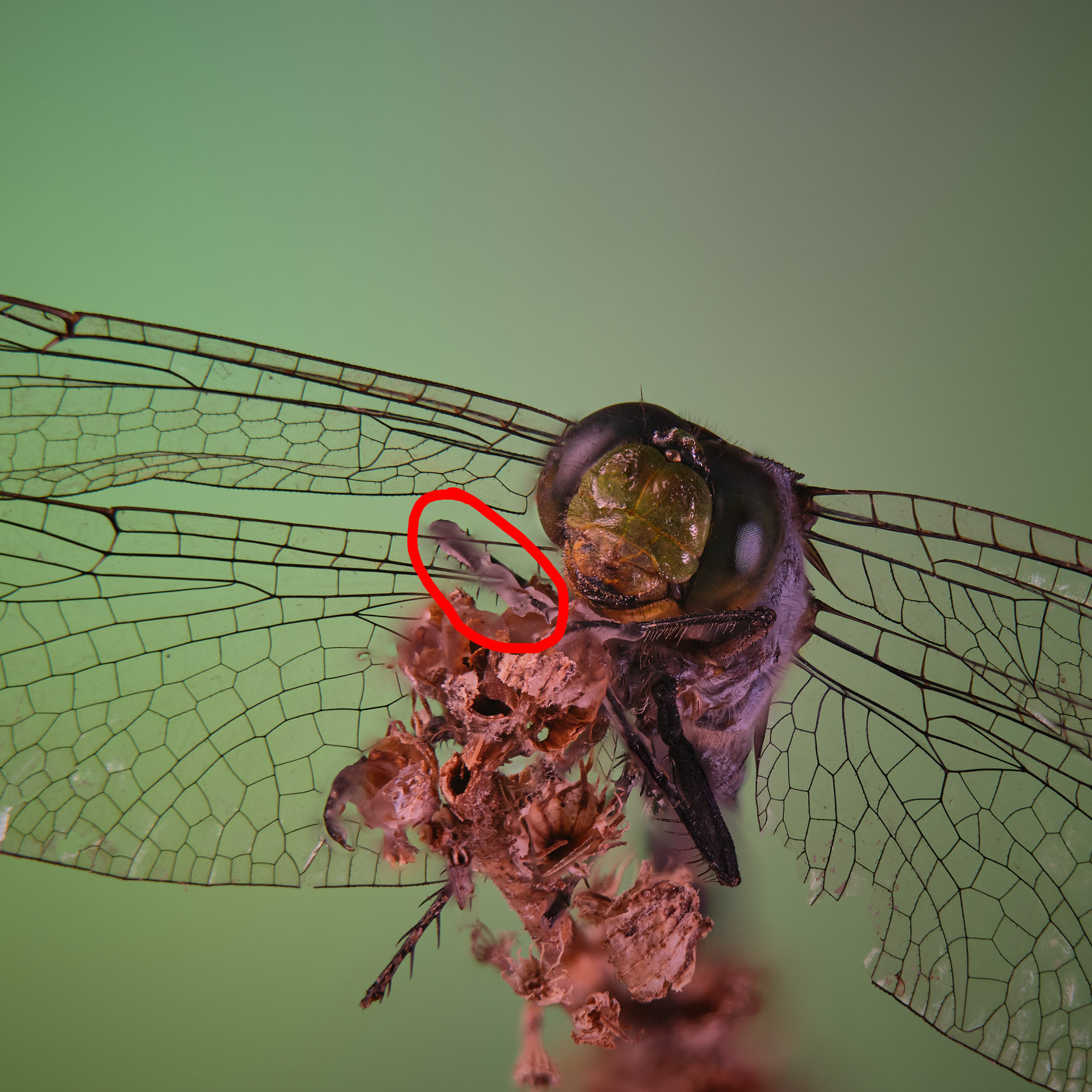Fail!

A few weeks ago, taking advantage of the Covid downswing in my ability to give presentations, workshops or photo travel adventures, I made a decision to up my skills in macro photography. And I’m happy to report that I’m failing miserably!
Weird, eh? After decades of helping people up their photographic game, I find myself in the role of student once again. I did some macro work during my film days and I’ve learned that since then macro has been elevated to a wondrous new level. The past few weeks I have spent trying to climb the highly technical learning curve. Here is my process: catch insects, set up the shoot, arrange lights, take 20-60 images, import, export to stacker software, re-import, analyze results, try to salvage image in post, damn!… another failure. Repeat. Fail. Repeat. Fail again.
If you look closely at the lead image, you can see that I did not start my stack before the point closest to the camera. Adding insult to injury, I ended it too soon. So the resulting stitch from 20 images did not make the grade. Lesson learned.
What I am learning first-hand for the umpteenth time - aside from patience - is what I tell my students and clients all the time. If you aren’t failing, you aren’t growing. If you want to improve your photographic skills, you have to take risks. You have to fail, learn incrementally, improve a bit, fail again and repeat until you achieve the mastery you want.
Sure, I’m noticing slight improvements as I experiment, which is indeed encouraging. I keep notes on my experiments. But I’m also noticing how far I have to go to achieve the level of mastery that I desire. I know I’m in it for the long haul. I see failure as a necessary, albeit frustrating, aspect of growth. For my part, I’ll give you periodic updates on my macro work as I gain skills.
In this next image, I did not try to have sharp focus throughout, as I was testing shooting a dragonfly for the first time (a dead one). The trouble, I learned after positioning the animal (1 hour), staging and photographing it (an hour or so), uploading, stitching and post-processing 45 images (another hour), was that dragonfly wings are sensitive to even the slightest breeze. In this case just moving my hand in front of the lens caused motion blur. Back to the drawing board.

Anyway, I encourage you to go out and try something new in your photography. Experiment. Don’t be afraid to fail. Then, fail… again… and again. Until you succeed, that is.
There are, indeed, short cuts to mastery. First, read all you can on topic. See what is available on YouTube. Keep notes of your trials, errors and successes. Follow the work of artists whose work you admire. If you have specific questions and/or frustrations, photo forums can be helpful. Just post your question, with images, and see what suggestions come up. Find a fellow photographer in your camera club, organization, or on the Web, that has reached a level of expertise to which you aspire. Then ask her pointed questions to solve your problem. There are tons of resources out there to help you up that ladder. But first, go out and fail.